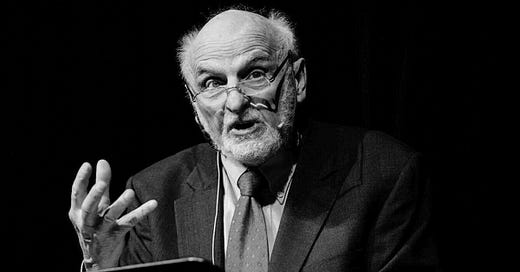Walter Brueggemann joined the communion of saints today.
Though his interpretative moves left me wanting and found his sermons heavy on the glawspel, I have always admired his prose and the zeal of his witness. He did indeed have a prophetic imagination.
Here’s an old podcast episode in which Teer Hardy, Taylor Mertins and I talk with Walter, whose books can be found on just about every pastors' shelves. Dr. Brueggemann shares what it means to be a community of resistance, the challenge of sabbath, and his favorite word to use when describing the biblical encounter between David and Bathsheba.
A summary bio:
Walter Brueggemann was a leading American Old Testament scholar and theologian, widely regarded for his work in prophetic imagination, biblical hermeneutics, and the intersection of scripture and contemporary justice. A minister in the United Church of Christ, Brueggemann earned his Th.D. from Union Theological Seminary (NYC) and a Ph.D. from St. Louis University. He served as a professor at Eden Theological Seminary and later as the William Marcellus McPheeters Professor of Old Testament at Columbia Theological Seminary until his retirement. Brueggemann is best known for his influential book The Prophetic Imagination (1978), in which he argues that the role of the biblical prophet is to both criticize oppressive systems and energize communities with a vision of alternative possibilities rooted in God's faithfulness. He has written extensively on the Psalms, the prophets, and the theology of the Hebrew Bible, consistently emphasizing the Bible’s subversive and liberating message in the face of empire, consumerism, and institutional religion.
His work combines rigorous scholarship with pastoral concern, often drawing from Karl Barth, theopoetics, and liberation theology. Brueggemann's prolific output includes more than 100 books and numerous essays, making him one of the most accessible and influential biblical theologians of the late 20th and early 21st centuries.



















Share this post